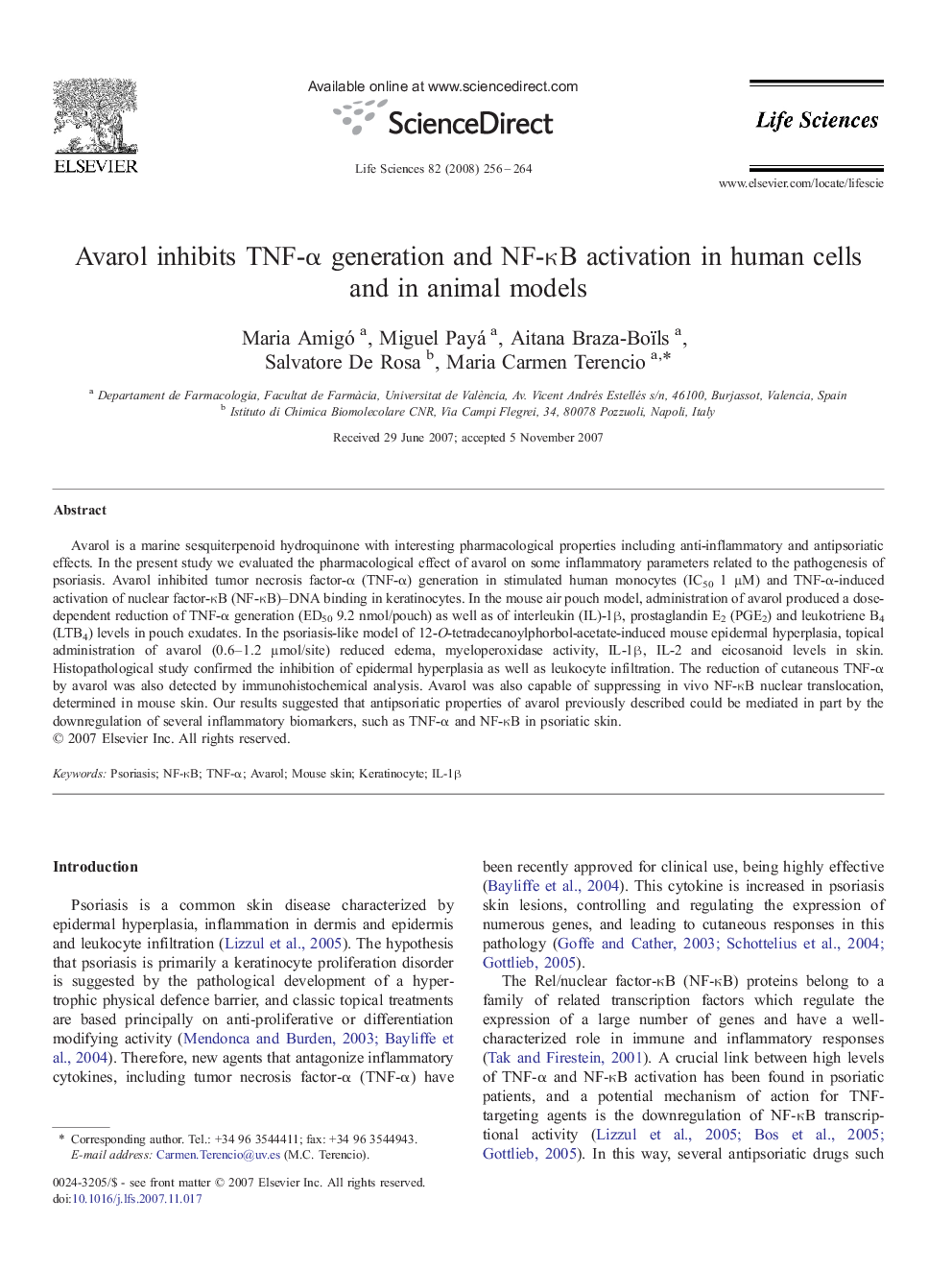| Article ID | Journal | Published Year | Pages | File Type |
|---|---|---|---|---|
| 2553822 | Life Sciences | 2008 | 9 Pages |
Avarol is a marine sesquiterpenoid hydroquinone with interesting pharmacological properties including anti-inflammatory and antipsoriatic effects. In the present study we evaluated the pharmacological effect of avarol on some inflammatory parameters related to the pathogenesis of psoriasis. Avarol inhibited tumor necrosis factor-α (TNF-α) generation in stimulated human monocytes (IC50 1 µM) and TNF-α-induced activation of nuclear factor-κB (NF-κB)–DNA binding in keratinocytes. In the mouse air pouch model, administration of avarol produced a dose-dependent reduction of TNF-α generation (ED50 9.2 nmol/pouch) as well as of interleukin (IL)-1β, prostaglandin E2 (PGE2) and leukotriene B4 (LTB4) levels in pouch exudates. In the psoriasis-like model of 12-O-tetradecanoylphorbol-acetate-induced mouse epidermal hyperplasia, topical administration of avarol (0.6–1.2 µmol/site) reduced edema, myeloperoxidase activity, IL-1β, IL-2 and eicosanoid levels in skin. Histopathological study confirmed the inhibition of epidermal hyperplasia as well as leukocyte infiltration. The reduction of cutaneous TNF-α by avarol was also detected by immunohistochemical analysis. Avarol was also capable of suppressing in vivo NF-κB nuclear translocation, determined in mouse skin. Our results suggested that antipsoriatic properties of avarol previously described could be mediated in part by the downregulation of several inflammatory biomarkers, such as TNF-α and NF-κB in psoriatic skin.
